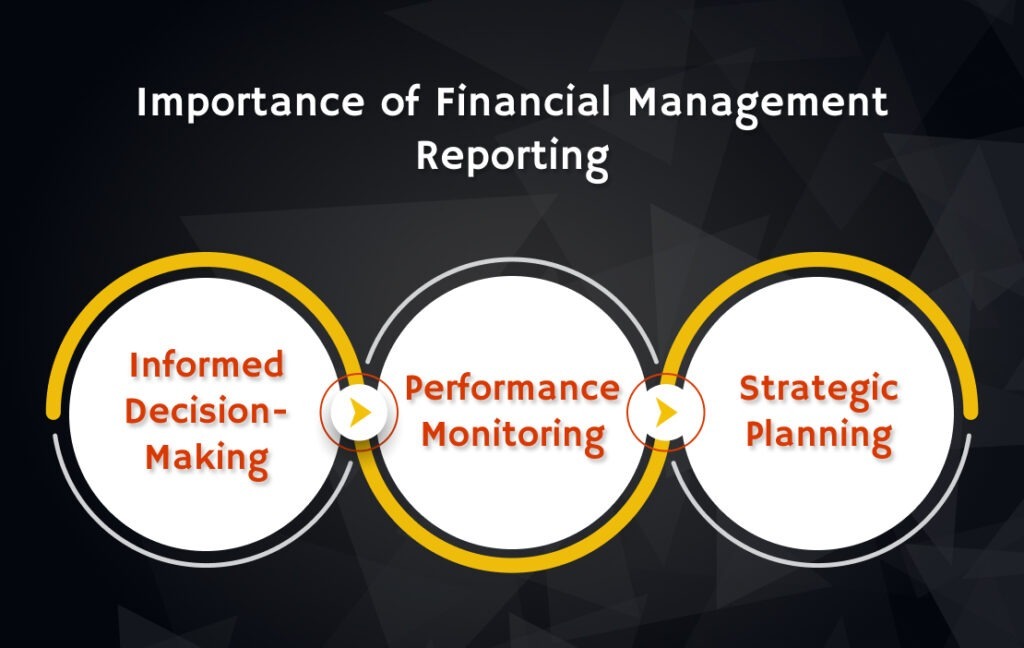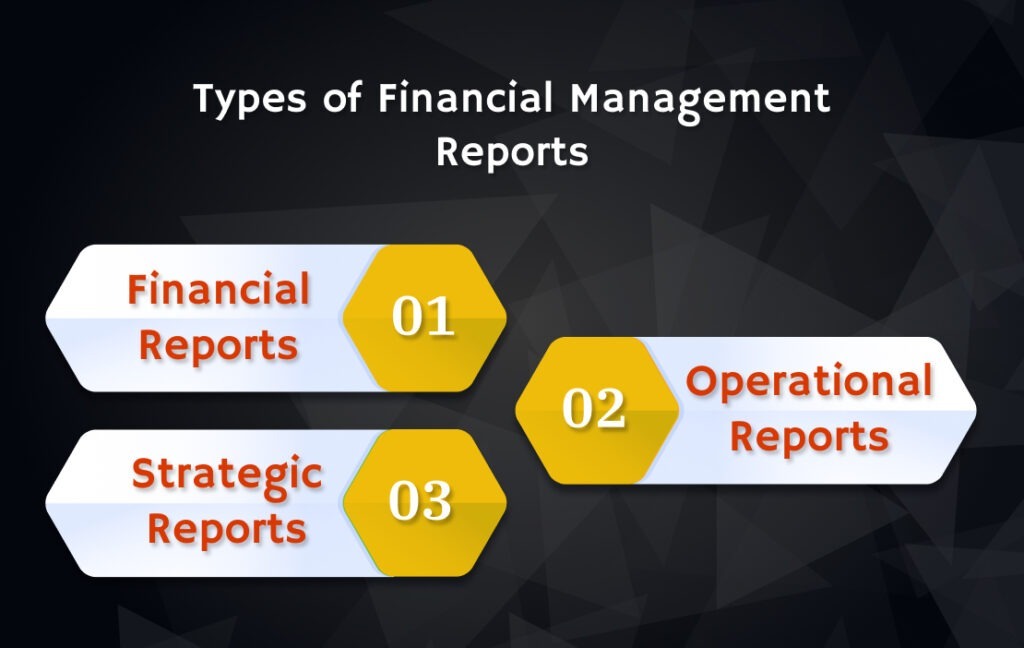Staying ahead requires strategic decision-making backed by accurate and timely information. Financial management reporting plays a pivotal role in providing businesses with the insights they need to make informed decisions, optimize performance, and achieve long-term success. This article explores the key components, importance, and challenges of financial reporting, shedding light on how businesses can leverage management reporting services, including management accounting outsourcing, to enhance their operations.
Key Components of Financial Management Reporting
A. Data Collection
Financial management reporting begins with the collection of accurate and relevant data. This process involves gathering information on various financial aspects, such as revenue, expenses, and investments. The reliability of the data collected is crucial for generating meaningful reports that guide decision-making.
To ensure data accuracy, businesses often leverage advanced technologies and tools for data collection. Automated systems and software solutions help streamline the process, reducing the likelihood of errors and enhancing the overall efficiency of financial management reporting.
B. Data Analysis
Once the data is collected, the next crucial step is data analysis. Businesses employ analytical tools to delve into the numbers, identify patterns, and extract actionable insights. This phase of financial management reporting transforms raw data into meaningful information that decision-makers can use to understand the financial health of the business.
Advanced analytics not only reveal historical trends but also enable businesses to forecast future financial scenarios. By leveraging predictive analytics, companies can make proactive decisions to capitalize on opportunities and mitigate potential risks.
C. Report Generation
The final output of financial management reporting is the generation of comprehensive reports. These reports are tailored to meet specific business needs, providing a detailed overview of the financial performance and health of the organization. Well-designed reports offer a snapshot of key financial metrics, facilitating quick and informed decision-making.
Financial management and reporting involve creating various types of reports, such as budget vs. actuals reports and profit and loss statements. These reports are essential for tracking financial goals, monitoring expenditures, and ensuring that the business is on the right path to success.
Also Read : Why Financial Analysis Is Essential For Your Business In 2024
Importance of Financial Management Reporting

A. Informed Decision-Making
One of the primary benefits of financial management reporting is its contribution to informed decision-making. By having access to accurate and up-to-date financial information, business leaders can make strategic decisions that align with the company’s goals. Whether it’s allocating resources, identifying cost-saving opportunities, or planning for future investments, management reporting services empower decision-makers with the insights needed to drive the business forward.
Real-life examples underscore the impact of informed decision-making through financial management reporting. Companies that prioritize data-driven decision processes often outperform their competitors, as their strategies are grounded in a comprehensive understanding of the financial landscape.
B. Performance Monitoring
Financial management reporting plays a vital role in performance monitoring, allowing businesses to track key performance indicators (KPIs). These indicators serve as benchmarks for success, helping organizations measure their progress toward strategic objectives. By continuously monitoring performance, businesses can identify areas of improvement, celebrate successes, and adapt their strategies to changing market conditions.
Effective performance monitoring is crucial for maintaining competitiveness and achieving sustainable growth. Management reporting services provide the tools and insights needed to track KPIs and optimize business operations accordingly.
C. Strategic Planning
Integrating financial management reporting into strategic planning is essential for aligning business goals with data-driven insights. Strategic planning involves setting long-term objectives and outlining the steps needed to achieve them. With the support of it, businesses can create realistic financial projections, assess the feasibility of strategic initiatives, and adapt their plans based on changing market dynamics.
Financial management and reporting contribute to the development of sound financial strategies that position businesses for success. By leveraging data-driven insights, companies can navigate uncertainties, capitalize on emerging opportunities, and stay agile in a rapidly evolving business environment.
Types of Financial Management Reports

A. Financial Reports
- Budget vs. Actuals Reports
Budget vs. actuals reports are essential tools for comparing planned financial goals with the actual performance of the business. These reports provide a comprehensive view of how well the company is adhering to its budgetary constraints, identifying areas of overspending or underspending.
- Profit and Loss Statements
Profit and loss statements, also known as income statements, offer a detailed overview of the company’s revenues, expenses, and profits over a specific period. These statements are crucial for evaluating the financial health of the business and making informed decisions about resource allocation.
B. Operational Reports
- Efficiency Metrics
Operational reports focus on efficiency metrics, such as production output, resource utilization, and workflow efficiency. These reports help businesses identify bottlenecks in their processes, streamline operations, and optimize resource allocation for maximum productivity.
- Workflow Analysis
Workflow analysis reports delve into the efficiency of business processes, identifying opportunities for improvement. By analyzing workflows, businesses can implement changes that enhance operational efficiency, reduce costs, and improve overall performance.
C. Strategic Reports
- Long-term Planning
Long-term planning reports provide insights into the financial viability of strategic initiatives over an extended period. These reports help businesses assess the potential return on investment, allocate resources effectively, and ensure that long-term goals align with the overall business strategy.
- Market Analysis
Financial management reporting also includes reports on market analysis, helping businesses understand market trends, consumer behavior, and competitive landscapes. Armed with this information, companies can make strategic decisions that position them as industry leaders.
Implementing Effective Financial Management Reporting
A. Choosing the Right Tools
The effectiveness of it relies on choosing the right tools for data collection, analysis, and report generation. Businesses can invest in specialized software and technology solutions designed for financial reporting to streamline processes and enhance accuracy.
Customizing these tools to the specific needs of the business ensures that the reports generated are relevant and actionable. Choosing user-friendly solutions that integrate seamlessly with existing systems contributes to a more efficient and cohesive reporting process.
B. Establishing Reporting Protocols
Establishing clear reporting protocols is crucial for the success of financial management reporting. Businesses need to define the frequency and timing of reports to ensure that decision-makers have access to timely information. Consistency and accuracy in reporting protocols help maintain the integrity of the data and foster trust in the decision-making process.
Regularly reviewing and updating reporting protocols ensures that they remain aligned with the evolving needs of the business. This adaptability is essential for staying responsive to changing market conditions and internal dynamics.
C. Training and Integration
Training employees on the importance of financial management reporting and how to use reporting tools is a critical aspect of successful implementation. A workforce that understands the significance of data-driven decision-making is better equipped to contribute to the overall success of the business.
Integration of financial management reporting into daily business processes is essential for creating a culture that values and prioritizes data. When reporting becomes an integral part of operations, businesses can leverage real-time insights to make proactive decisions and stay ahead of the competition.
Challenges in Financial Management Reporting
A. Data Accuracy and Quality
One of the primary challenges in financial management reporting is ensuring the accuracy and quality of the data collected. Inaccurate or incomplete data can lead to flawed insights and misguided decisions. To address this challenge, businesses must implement robust data quality controls and regularly audit their data collection processes.
Leveraging advanced data validation techniques, employing skilled data analysts, and investing in data cleansing tools are strategies to enhance the accuracy and quality of financial data. By prioritizing data integrity, businesses can build a solid foundation for reliable financial management reporting.
B. Integration with Other Systems
Integrating financial management reporting with other systems within the organization can be a complex task. Incompatibility issues between different software solutions may hinder seamless data synchronization, leading to delays and potential errors in reporting.
To overcome integration challenges, businesses should invest in technology solutions that offer compatibility with existing systems. Collaboration between IT departments and financial teams is crucial to ensure a smooth integration process, facilitating the flow of data across various organizational functions.
C. Maintaining Relevance
Another challenge in financial management reporting is the need to maintain relevance in the face of evolving business needs. As market dynamics change and businesses undergo transformations, reporting methodologies must adapt to remain effective.
Continuous improvement in reporting methodologies involves staying abreast of industry trends, embracing new technologies, and being open to feedback from users. Businesses should regularly assess the relevance of their reporting practices and be willing to implement changes that enhance the value of financial management reporting.
Also Read : Preparing For External Audits: Ensuring Audit Readiness
Management Reporting Services and Outsourcing
A. Management Reporting Services
For businesses seeking expertise in financial management reporting services provide a valuable solution. These services often include a comprehensive suite of tools, software, and skilled professionals dedicated to optimizing the reporting process.
By outsourcing financial reporting, businesses can benefit from specialized knowledge and experience, ensuring the generation of high-quality, accurate reports. Financial reporting services can be tailored to the specific needs of the business, offering a cost-effective and efficient solution for organizations of all sizes.
B. Management Accounting Outsourcing
Management accounting outsourcing is a subset of management reporting services that focuses specifically on the financial accounting aspects of reporting. Outsourcing these functions to a dedicated accounting company allows businesses to tap into the expertise of experienced accountants without the need to build an in-house finance team.
This approach not only reduces operational costs but also provides access to the latest accounting technologies and best practices. Management accounting outsourcing enables businesses to focus on their core competencies while ensuring that financial reporting is handled by professionals with a deep understanding of accounting principles.
Conclusion
Financial management reporting is a cornerstone of strategic decision-making, performance monitoring, and long-term planning for businesses. By understanding the key components, embracing the importance, and addressing the challenges associated with financial management reporting, organizations can unlock the full potential of their financial data.
Choosing the right tools, establishing clear reporting protocols, and integrating reporting into daily operations are essential steps in implementing effective reporting. While challenges exist, businesses can overcome them through a commitment to data accuracy, seamless integration, and a proactive approach to maintaining relevance in reporting methodologies.
For those seeking specialized expertise, management reporting services and management accounting outsourcing offer valuable solutions. Outsourcing financial management reporting functions to an accountant company can provide businesses with the assurance that their reporting needs are handled by professionals with the knowledge and experience to drive success.
It stands as a powerful tool for those who seek not only to survive but to thrive. By harnessing the insights derived from financial data, businesses can navigate uncertainties, make informed decisions, and chart a course toward sustained growth and success.
Take control of your business’s financial narrative with vteam’s Management Reporting Services. From meticulous data collection to insightful analysis, our services pave the way for strategic decision-making and sustained growth. Trust vteam to be your partner in financial success.


